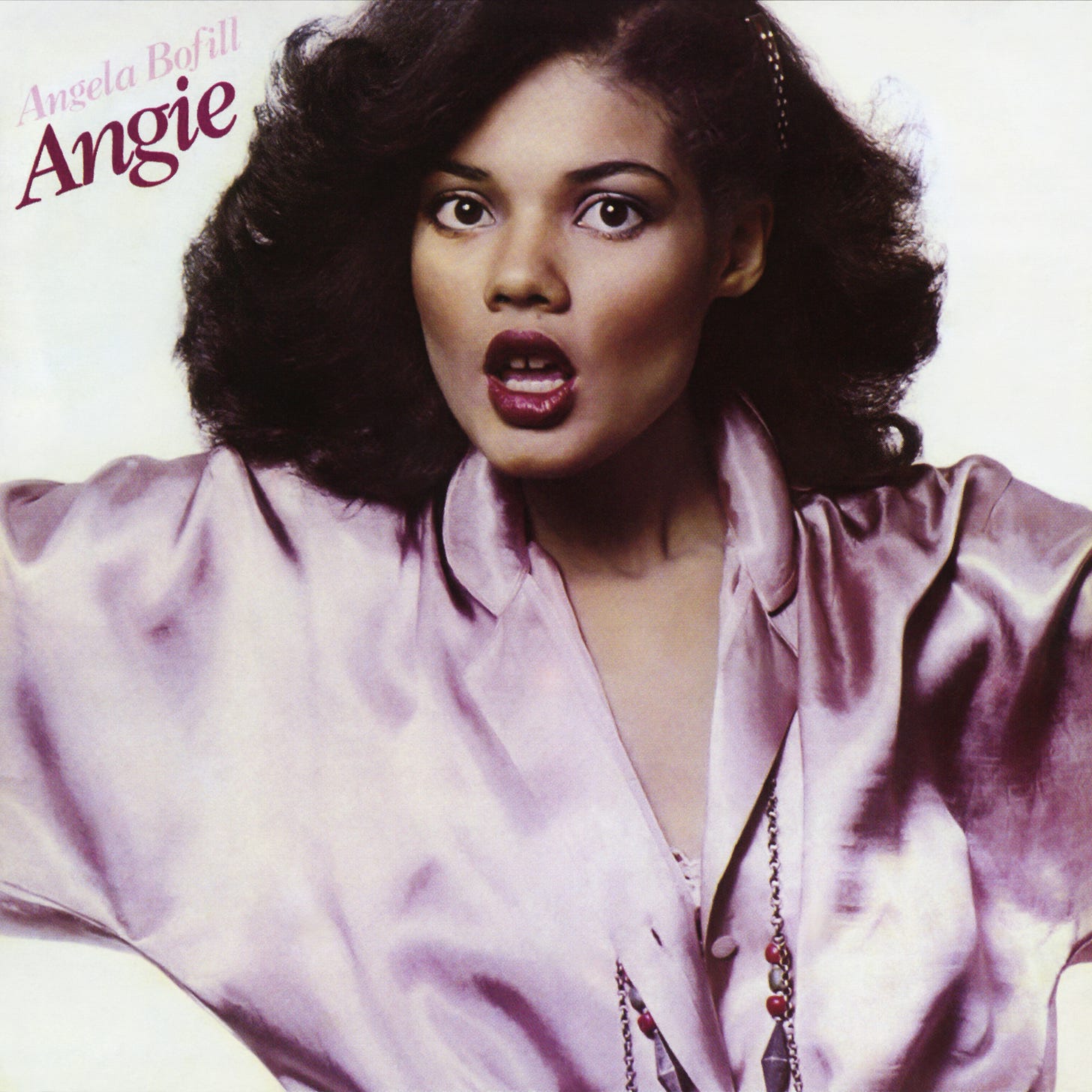Milestones: Angie by Angela Bofill
Angela Bofill’s debut LP introduced listeners to a sound that was at once familiar and revolutionary—a seamless blend of jazz sophistication, soulful depth, and pop accessibility.
Rest in power, Angela Bofill.
Angela Bofill’s story begins in the vibrant, culturally rich neighborhoods of the Bronx in the 1950s. Born to a Cuban father and Puerto Rican mother, Bofill grew up surrounded by diverse musical influences that would shape her unique sound in the years to come.
From an early age, Bofill was exposed to various musical styles. Her household resonated with the sounds of Latin music, a nod to her parents’ heritage. The rhythms of salsa and merengue intermingled with the soulful strains of R&B and the improvisational nature of jazz that permeated the New York City air. Additionally, Bofill’s mother, a classical music enthusiast, introduced her daughter to the works of European composers, adding yet another layer to the young artist’s musical education.
This eclectic musical upbringing laid the foundation for Bofill’s future career. As a child, she began singing in her church choir, honing her vocal skills and developing a deep appreciation for gospel music. Her natural talent was evident, and she soon performed at local events and gatherings.
Bofill’s formal music education began at the Manhattan School of Music, where she studied classical voice. This training provided her with a solid technical foundation, allowing her to develop the control and range that would later become hallmarks of her style. However, Bofill’s passion for jazz and popular music remained strong, and she continued exploring these genres outside her classical studies.
As Bofill entered adulthood, she made a name for herself in New York’s music scene. She performed with various jazz ensembles and R&B groups, gaining valuable experience and refining her unique vocal style. Her performances caught the attention of several established musicians, leading to collaborations that would prove instrumental in launching her career.
One such collaboration was with flutist Dave Valentin, who introduced Bofill to Dave Grusin and Larry Rosen, the founders of the newly established GRP Records. Impressed by Bofill’s exceptional vocal abilities and innovative approach to blending different musical styles, Grusin and Rosen saw potential in the young artist and offered her a recording contract.
The creation of Angie, Bofill’s debut album, was a collaborative effort that brought together her diverse musical influences and the production expertise of Grusin and Rosen. The album’s sound was crafted to showcase Bofill’s versatile vocals while appealing to a broad audience.
During the recording sessions, Bofill worked closely with a team of seasoned musicians and arrangers. Her classical training allowed her to communicate effectively with the orchestral elements, while her background in jazz and R&B informed her improvisational style and phrasing.
The song selection process for Angie was crucial in shaping the album’s identity. Bofill contributed several original compositions, including the mystical “Under the Moon and Over the Sky,” highlighting her songwriting abilities and unique artistic vision. The album also featured carefully chosen covers and collaborations that complemented Bofill’s originals and showcased her interpretative skills.
Throughout the recording process, Bofill’s voice remained the centerpiece. Her ability to convey deep emotion and easily navigate complex melodies impressed her collaborators and the production team. The resulting album reflected Bofill’s artistry—a harmonious blend of jazz sophistication, soulful depth, and pop sensibility.
Bofill’s performance on “This Time I’ll Be Sweeter” is a masterclass in emotional delivery. She infuses each line with a sense of longing and hope, perfectly capturing the song’s themes of renewed love and second chances. Her phrasing is particularly effective in the chorus, where she stretches certain words and adds gentle vibrato to others, emphasizing the song’s emotional core. “Share Your Love” could be a more emotionally direct track, possibly focusing on themes of connection or affection. Bofill’s ability to convey complex emotions through her vocals would likely be at the forefront.
“Baby, I Need Your Love” rounds out this roundup of standout tracks, showcasing another aspect of Bofill’s musical personality. This upbeat, Latin-influenced number allows Bofill to display her more playful side while still delivering a heartfelt performance, while “Share Your Love” is a soulful plea for connection and understanding. Bofill’s performance here is passionate and urgent, her voice soaring over a groove-heavy arrangement that features funky bass lines and lovely saxophone sections.
Commercial success for Angie was modest but significant for a debut album. While it didn’t top the charts, it performed well enough to establish Bofill as a promising new artist. The album found particular favor among jazz and soul enthusiasts, who appreciated Bofill’s nuanced approach to these genres. This also played a role in advancing the visibility of Latina artists in the American music industry. Bofill’s embrace of her Cuban and Puerto Rican heritage, both musically and personally, provided representation for Latinx listeners who rarely saw themselves reflected in mainstream American music.
Angie’s critical and artistic success laid the groundwork for Bofill’s subsequent career. It established her as a serious artist with a unique voice, both literally and figuratively. This debut set high expectations for Bofill’s future work and positioned her as an artist to watch in the coming years. The reception and impact of Angie demonstrated the appetite for sophisticated, genre-blending music in the late 1970s. It proved that there was room in the musical landscape for artists who refused to be confined by traditional genre boundaries and approached their craft with depth and authenticity.
Standout (★★★★½)



Sullivan …in my opinion, drops pen to paper with deliberate precision! Each word strikes with clarity for the reader. He is to be commended for infusing the needed visceral weight that lingers in a piece such as this one. This tribute to Bofoll is no exception. Words that come to mind..piercing and deeply moving. Thank you B.
I Try was beyond Beautiful, I played it so many times, my Dad would comment!